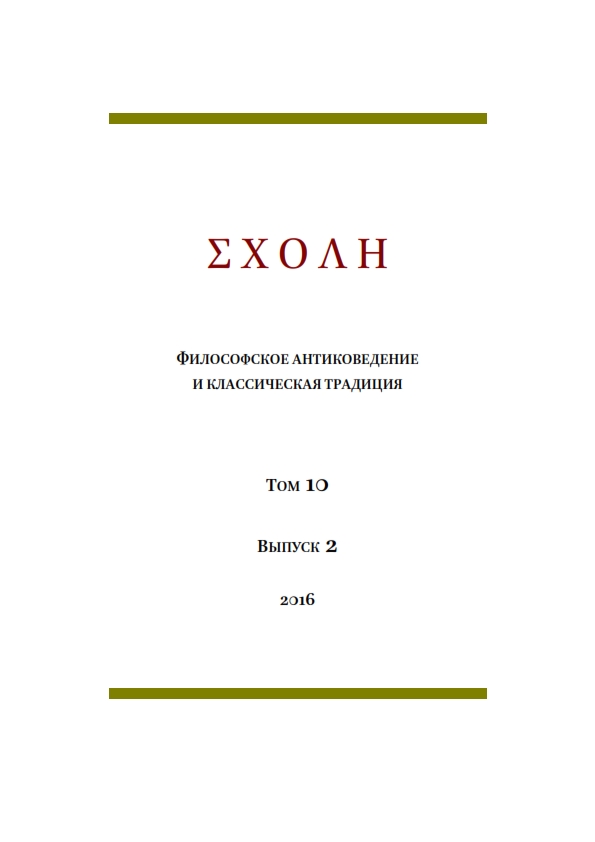КТО К КОМУ ИДЕТ НА ПИР, ИЛИ О «ПОРЧЕ» ПОСЛОВИЦ В ПЛАТОНОВСКОМ «ПИРЕ» (SMP. 174A3–C7)
WHO GOES TO WHOM FOR THE FEAST, OR ON CORRUPTION OF PROVERBS IN PLATO'S SYMPOSIUM (SMP. 174A3-C7)
Author(s): Irina ProtopopovaSubject(s): Philosophy, History of Philosophy, Special Branches of Philosophy, Ancient Philosphy, Philosophy of Language
Published by: Новосибирский государственный университет
Keywords: Plato; dialogue Symposium; Socrates; proverb; ὑβρις; inversion; erotic; dialectic;
Summary/Abstract: The article analyzes the meaning of a passage from Plato's dialogue Symposium, where Socrates modifies ("spoils") the proverb about “the good ones”, who go to the feast without an invitation (Smp. 174a3-c7). The author indicates the textual problems related to this proverb and notes at least two versions of it in existence in Plato's time. The main attention is paid to these two questions: 1) which version of the proverb and how exactly does Socrates distort, and, according to him, also did Homer? 2) what point, above all a philosophical one, may be traced in this passage, given the context of the dialogue as a whole? The author offers her own interpretation based on the view that the leitmotif of the dialogue is the theme of ὑβρις put in terms of inversion (including turns and reversals in wordings and actions of the characters, Socrates above all. Appraising the functions of this passage's keywords, διαφθείρω, μεταβάλλω, and ὑβρίζω, in the Symposium and other dialogues of Plato, the author shows how this theme is reflected in a "philosophical-erotic" semantics of the Symposium, which is closely associated here with dialectics.
Journal: ΣΧΟΛΗ. Философское антиковедение и классическая традиция
- Issue Year: X/2016
- Issue No: 2
- Page Range: 409-418
- Page Count: 10
- Language: Russian

